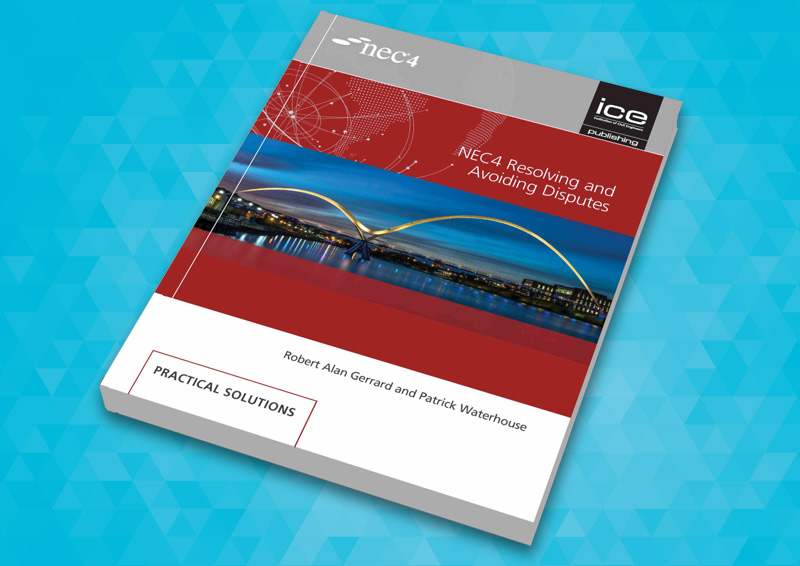Patrick Waterhouse and Robert Gerrard, authors of the ICE Publishing book, NEC4 Resolving and Avoiding Disputes, share their tips on dispute avoidance and resolution.

- Updated: 31 Mar 2020
- Author: Patrick Waterhouse, Construction Adjudicator, Bowdon Consulting Ltd and Robert Gerrard, NEC Users’ Group Secretary, Accredited Mediator
When we started research for our book on dispute avoidance and resolution in NEC4 contracts, we aimed to put an equal focus on avoidance and resolution.
Resolution necessarily can end up in a confrontational procedure which can often be detrimental to the Parties’ relationship on the particular project and any others that they may be working on together. Sometimes it is the only way that two entrenched organisations can deal with a dispute. Our work as mediators has exposed both of us to situations where Parties remain courteous and professional with one another despite a major commercial difference. Adjudicators cannot always detect such things dealing, as they frequently do, with the dispute entirely through correspondence. But surely if Parties have a dispute, their aim should be to resolve it and to maintain their longer term relationship. We dare to suggest that each might learn from the dispute resolution and thereby enhance their relationship.
Of course, we are not sufficiently naive to suggest that this will be the norm, but the evidence of our work as mediators and as party advisors suggests that many parties do seek to avoid long-term harm to their relationships. NEC4 introduced the concept of senior representatives, people who represent each Party but who probably are not involved on a day to day basis. Their role is similar to that of a mediator and is one we support. This method has been used for many years under other forms of contract such at the UK Government’s private finance initiative contracts. It has been used on many NEC3 contracts in the UK nuclear industry, mainly to good effect in terms of dispute avoidance. The process, whilst not compulsory for UK construction contracts, allows the parties to use any procedure they consider necessary and that could include mediation.
Our research showed, unsurprisingly, that following the contract was the best route for Parties to avoid disputes. Communicating clearly, using the early warning provisions, issuing notifications for ambiguities and inconsistencies, all contributed to a positive and open relationship. Where Parties (and we include the Project Manager and Supervisor in this label) choose to avoid the contract due to ignorance or misplaced views about tactical advantage, they increase the chance of a dispute.
Patrick adjudicated an NEC dispute which could be labelled as a Christmas ambush. Brought by the Subcontractor on 23 December, the notice of adjudication was met with howls of protest from the (main) Contractor about their lack of available staff and the questionable morals of the other Party’s timings. Yet further investigation of the dispute found months of ignored correspondence where the Contractor was refusing to deal with compensation events and even monthly assessments. Payless notices had been issued routinely at nil value and the Subcontractor had effectively run out of patience. The Contractor’s allegations of questionable morals sounded hollow. But how did those two end up in adjudication over the festive season? Many months of problems preceded the dispute and contributed to it. A major contributor to disputes is often the decision of the Parties to work together when maybe they weren’t well suited. That was certainly the case in our Christmas example.
Parties that wish to avoid disputes need to consider their relationship from the earliest possibility and to conduct themselves accordingly.
Find out more about NEC4 Resolving and Avoiding Disputes, available in print and as an eBook.
